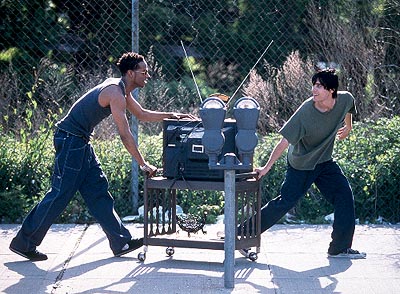By Brenna Walton
A lifelong friendship is destroyed by New Jersey’s painkiller epidemic.

Jane* and I had known each other since she was 5 and I was 8. She was the little sister of one of my childhood friends and often tagged along on our preteen adventures. Her sister and I went our separate ways in high school, but I still saw Jane around school my senior year when she was a freshman. After graduation it took four years for us to cross paths again. It happened when she and I both got jobs as servers at the new Carrabba’s restaurant opening up in our hometown.
Jane had always been a troublemaker, but that’s what I liked about her. Nothing scared her. She was back in New Jersey after the University of New Orleans kicked her out — she was caught using and selling drugs in her dorm room. When we reunited at the chain restaurant’s training session, nostalgia overwhelmed us. We immediately became inseparable.
“It’s a Roxi night,” Jane said to me one night as we left work. We drove back to her house where she grabbed a prescription pill bottle from under her pillow. I watched as she ground up two little blue pills, Roxicodone, or Roxi for short. Then she rolled up a dollar bill and snorted one of the lines in one fell swoop before handing the bill to me.
This was in 2003, several years before the painkiller epidemic in suburban New Jersey really blew up. Jane had stolen the pills from her father who had been prescribed them for a knee injury. He didn’t take them because they made him nauseous, yet for whatever reason, he continued filling the prescription. The Partnership for a Drug Free New Jersey ad campaign touting medicine cabinet vigilance is pretty accurate.
Over the next several years, we both descended into full-on addiction, cycling along on a fluctuating spectrum of dependence. By then, we were more each other’s background scenery than friends. Our entire relationship eventually revolved around getting and staying high.
Drug buddies are often introduced when they’re already well acquainted with their common drug of choice. If and when they clean up, they usually part company without much emotional turmoil. But when the friend comes along before the drug does, the rules aren’t so hard and fast.
My relationship with Jane became confusing when I went to rehab and she didn’t. The early months of my recovery were lonely. My non-addict friends were happy for me, but distant, waiting to see if I would stay clean. All the other people in my outpatient group were middle-aged men who were really into the 12-step system. So I began to try desperately to rekindle the friendship I had with Jane and our once tight-knit group of longtime friends, who had one by one succumbed to Roxicodone, like a domino set of bad influence.
It was a really stupid move on my part. I was supposed to be avoiding people and situations I associated with drugs, and here I was, inviting my triggers to sit down and make themselves comfortable. At first, we all played nice. They didn’t do anything in front of me, and I tried to pretend I didn’t notice the telltale signs of their sniffing and nodding. But that quickly unraveled. Before long, I couldn’t help asking if they were high. We all knew the truth, but they would just shrug.
They began to resent me. I resented them right back, especially Jane. I was angry that Jane and Co. would rather get high than have me around, which they made clear when they started to indulge in front of me. They were angry with me for hanging around and making them feel guilty. Jane even suggested once that I probably didn’t belong there, but I didn’t listen. I thought I could handle it. But then I realized I could not be friends with my drug buddy when I was no longer on drugs.
I foolishly kept going back, and I guess they didn’t have the heart to tell me to get lost. It was pretty pathetic.
When I finally lashed out one night, they unloaded on me right back. I haven’t seen any of them since. I don’t know if they’re still doing drugs. I fluctuate between missing them, pitying them, and yes, still resenting them. But the feeling that doesn’t change is the profound sense of loss that comes every time I see or hear something that reminds me of them.
*Name has been changed to protect her identity

